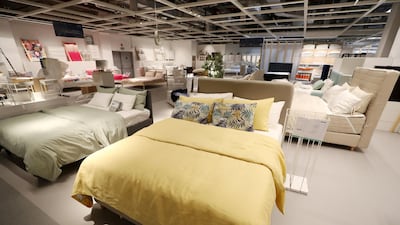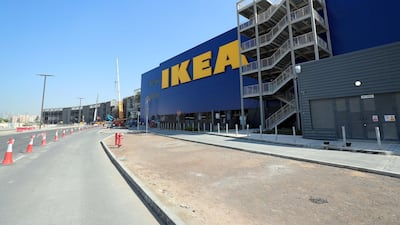Ikea imposed a financial penalty on unvaccinated UK employees who miss work if they are ordered to isolate themselves after coming into contact with someone with Covid-19.
But if these workers become ill with the virus they will still receive sick pay as normal, the company said.
The changes, which came into effect in September, mean unvaccinated staff only receive statutory sick pay of £96.35 ($131) a week during the 10-day isolation period, which is much lower than average weekly wages before taxes.
The furniture company, which has 10,000 workers in the UK, is among a growing list of major retailers such as Walmart. in the US and British grocer Wm Morrison Supermarkets putting pressure on staff who refuse to be vaccinated without a valid reason.
The penalties mark a change in approach. Until recently, most businesses focused on encouraging staff, such as offering paid time off for employees to have a Covid-19 shot.
Ikea said its sick pay policy was adapting to changing government requirements and the large vaccine programme across the UK.
“We know this is a highly emotive topic and we appreciate there are many unique circumstances,” a representative said.
The rapid spread of the Omicron variant is forcing retailers to react as a rise in absenteeism adds to the woes of a sector already battling disrupted supply, rising freight costs and raw material shortages.
European leaders have also been increasing pressure on those unwilling to be vaccinated.
French President Emmanuel Macron last week said his government’s strategy was to hassle those who have refused shots, while British Prime Minister Boris Johnson accused anti-vaccine campaigners of spreading “nonsense".
People in England who are unvaccinated and identified by the government’s test-and-trace system as exposed to the virus must isolate themselves.
People who have had at least two vaccine doses are exempt.
The Ikea policy allows managers to consider mitigating circumstances for refusing the vaccine, such as pregnancy or other medical conditions, the company said.
Rustom Tata, chairman and head of employment at law firm DMH Stallard, outlined the legalities around restricting sick pay for employees, many of whom are in low-paying roles.
"Much attention is being paid to those employers who are restricting sick pay to SSP levels only, in respect of staff who are self isolating but unvaccinated," Mr Tata said.
"This was being considered by a number of employers last autumn, and has now been progressed by some.
"As early as last autumn, seeking to avoid unintended consequences, many employers stepped back from restricting sick pay to SSP levels, viewing it as counter-productive."
He said it could encourage employees to turn up to work rather than isolate when a family member had tested positive, "thereby putting more colleagues at risk of infection".
"What the debate is highlighting is the low level of SSP, which at less than £100 a week is barely 20 per cent of average salary in the UK," Mr Tata said.
"While some will say that SPP shouldn’t be a ‘skivers’ charter’ at a time of continuing public health crisis, it seems like this particular safety net isn’t fit for purpose.
"As the Institute for Employment Rights identified, nearly two thirds of employers think the current level is too low, but the government has so far resisted calls for a review of the SSP scheme."











